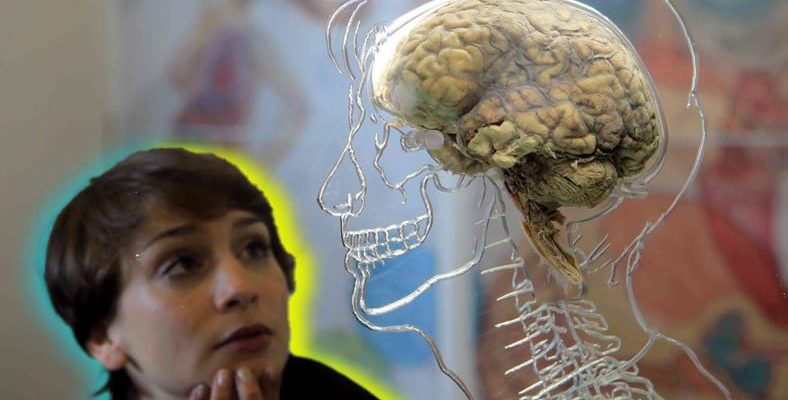The brain, which is the most distinctive feature of storing 3 pieces of 1000 terabytes of information and being able to retrieve it from there at any time, interestingly sometimes realizes that it has forgotten something, but cannot remember what it is.
You are about to leave the house and you realize that you forgot something. First, you check your bag and count the contents and say “what’s in here, but something is missing” and take a last look around. But you don’t realize what you forgot and you leave the house and sometimes that thing comes to your mind halfway and have to go back you are staying. This scene sounds familiar to you too, right?
To understand why this scene took place, first how information is stored in our brain You need to know about.
Our memories are stored in our long-term memory.
When it comes to memory, it is often thought as if there is only one memory, but scientists working on information processing processes actually include ‘sensory memory, short-term memory, long-term memory’. three different types of memory he’s talking about.
According to the research our sensory memory It has unlimited capacity. Everything we perceive from our environment is recorded here. But incoming information is quickly lost if not processed. If information is processed here, it passes into short-term memory.
short term memory On the other hand, it has passed the filter of attention and perception in sensory memory and receives the processed information. However, this memory is not that long-lasting, as the name suggests. After being held here for about 20-30 seconds, some of the information is transferred to the long-term memory. There are two methods applied to prolong the duration of short-term memory: repetition and grouping.
Here, let’s give you another bonus information on the subject right away. Most of the people information between 5 and 9 they keep in mind. That’s why they memorize numbers by grouping them. Remember how you memorized your TR ID number and phone number. That’s the job of your short-term memory.
Our long-term memory is the last stop of our information. Its capacity is almost unlimited. Our entire life resides here. This memory is also divided into three: semantic (semantic) memory, episodic (episodic) memory, and procedural memory. Although we do not go into details of these, it is understood from their names what they are more or less related to.
There are several reasons why things may slip out of our minds.
While the causes of forgetfulness may be different for each person, experts have found a few common causes. Lack of attention Let’s start with. Researchers working on the subject mention that you are more likely to forget information you did not pay attention to. Other reasons for forgetting stress, fatigue, lack of sleep It is thought that there may be temporary factors such as medication or drug use.
Unlike the reasons above, sometimes the brain is just encodes new information on old information Old knowledge may have been forgotten. Your brain may categorize the information that you do not use for a long time as unimportant and put it on the dusty shelves of the archive. Even if you cannot associate the information you receive with your existing information, the information may tend to be forgotten.
According to these studies, the brain a house with many rooms and shelves You can think like. If you leave the information in the hall and do not put it in the relevant room and shelf, the information is lost. But when you put it in the relevant room and shelf, you can remember it for a long time. You do this by associating them with previous information and making connections between them.
Now that we have explained the processes of memory and forgetting, let’s return to our original question: Why can’t we remember what we have forgotten?
Let’s go back to the moment when you were about to walk out the door. You realize that something is missing. Let’s go a little behind that first. Two of the ways information is stored in memory, it was repetition and coding isn’t it? So what actually happened is that the brain was stimulated and the remembering process started when you decided to go. But this process has been discontinued because there is not enough stimulation. The information is there, in that room, on that shelf, waiting for you. But you forgot the way to that room. Because the information remained in short-term memory and was forgotten in a short time since there was no re-encoding.
There may be other reasons as well. For example deficiency of vitamin B12 It can also make you forget. If we look at what psychoanalysis says about this subject, Sigmund Freud explains such events in his book “The Psychopathology of Everyday Life” as follows: In fact, when you subconsciously think that that thing may be dangerous for you, you have difficulty in recalling the information.
Here are a few things you can do to make this situation less common:
While the experts talking about the subject mention that thinking about that thing, repeating things that may be related to it, can make it easier to remember, the suggestions below are: reducing forgetfulness They say it might work at:
- taking notes You can make it a habit. When certain things, such as things to do, are noted down and checking this list becomes a habit, the number of such situations can be reduced.
- You can have your blood values checked regularly.
- You can try to stay away from a stressful life.
- Information again and with good coding memorize it.
RELATED NEWS
Memory Techniques That Memorize Important Things You Shouldn’t Forget
RELATED NEWS
